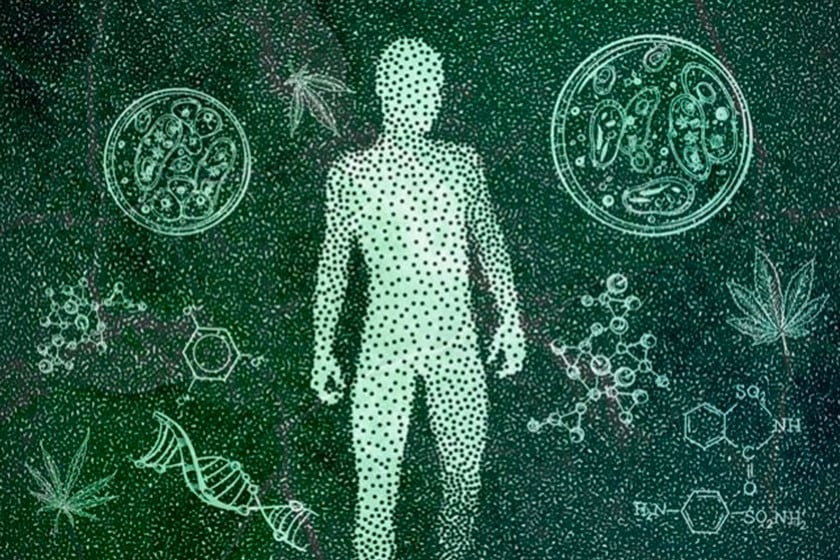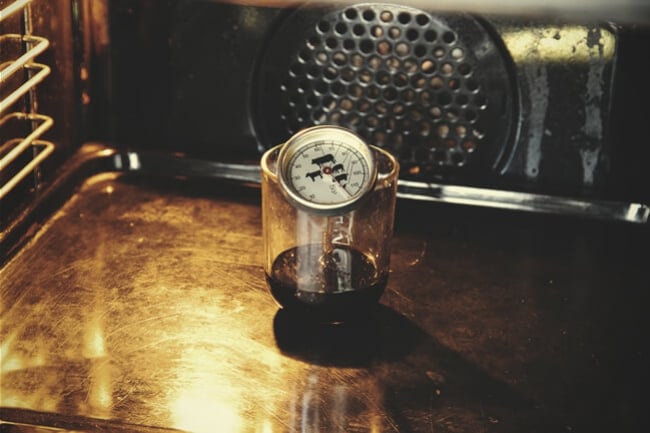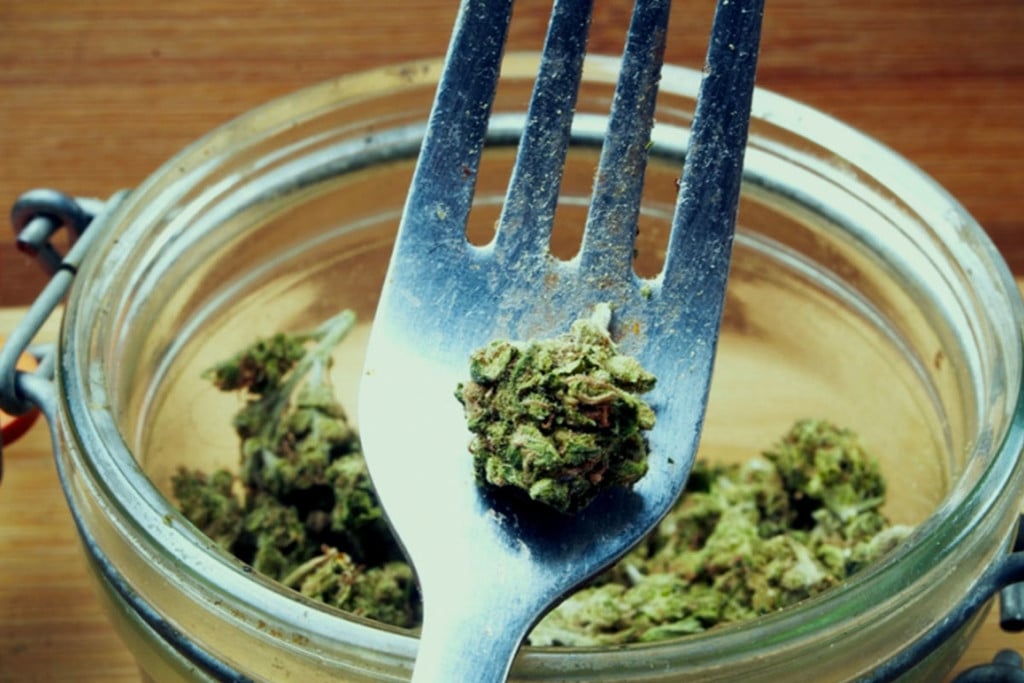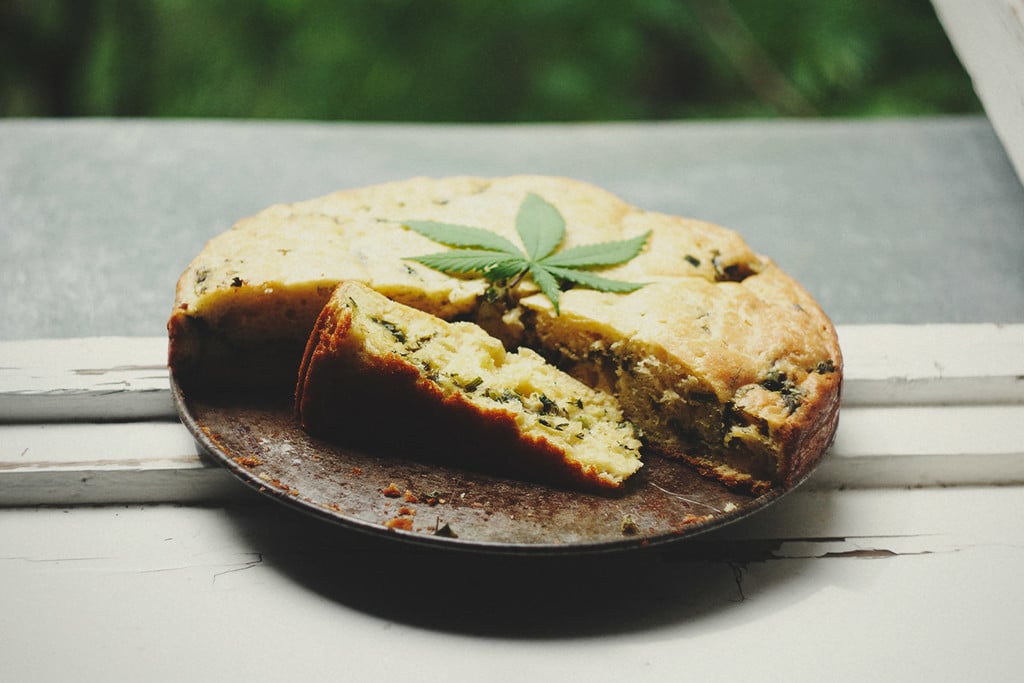.
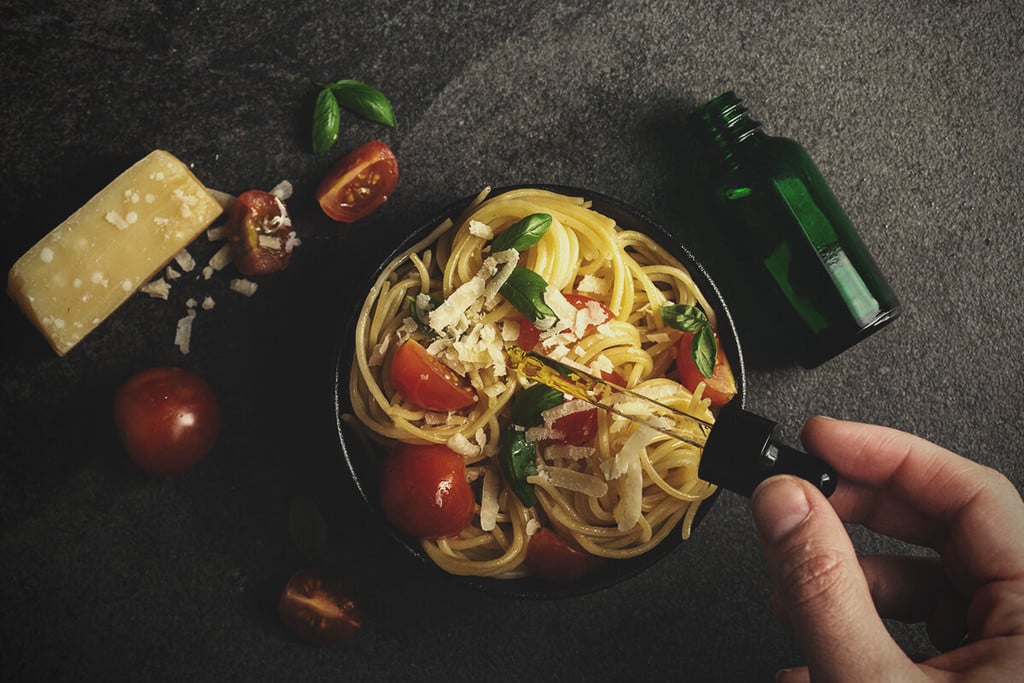
CBD Nutrition: A Guide to Building a CBD Infused Diet
CBD continues to dominate health and wellness sectors. But, introducing CBD into your diet is about much more than just taking a few drops of CBD oil. Read on for an in-depth look at how to keep up a CBD-rich diet.
Contents:
Are you looking to incorporate CBD into your diet? You’re not alone. People all over the globe include CBD in their daily regimen.
Keep reading to see the best ways to create a CBD-rich diet.
Why Include CBD in Your Diet?
Cannabinoids have taken the spotlight in the world of health and wellness. Everyone from athletes to stay-at-home parents are now interested in using cannabinoids to enhance their everyday life.
In fact, some research even suggests that clinical endocannabinoid deficiency (or CECD) could be the underlying cause of everything from migraines and irritable bowel syndrome to chronic pain and depression. For many, that’s enough to warrant looking into natural ways to incorporate CBD and other cannabinoids into their diet.
What Foods Can Naturally Stimulate Cannabinoid Activity?
The obvious way to incorporate more cannabinoids into your diet is by consuming cannabis. However, you can also stimulate the endocannabinoid system (the body’s natural network of cannabinoid receptors and endocannabinoids) by eating more of the following foods:
|
Hemp, chia, and flax seeds |
Studies suggest that omega fatty acids (especially omega-3 and 6) can help stimulate endocannabinoid activity[1]. |
|
Eggs, sardines, anchovies, and walnuts |
All of which are full of essential fatty acids. |
|
Chocolate |
Cocoa powder has been shown to contain three types of N-acylethanolamines[2], fatty acids that may mimic anandamide (an endocannabinoid naturally produced in the body) and either activate cannabinoid receptors or naturally increase anandamide levels. |
|
Infusions, teas, and herbs |
Many spices, teas, and herbs contain terpenes like (beta-caryophyllene, pinene, limonene, linalool, and more) that may stimulate the endocannabinoid system. |
| Hemp, chia, and flax seeds |
|
Studies suggest that omega fatty acids (especially omega-3 and 6) can help stimulate endocannabinoid activity[1]. |
| Eggs, sardines, anchovies, and walnuts |
|
All of which are full of essential fatty acids. |
| Chocolate |
|
Cocoa powder has been shown to contain three types of N-acylethanolamines[2], fatty acids that may mimic anandamide (an endocannabinoid naturally produced in the body) and either activate cannabinoid receptors or naturally increase anandamide levels. |
| Infusions, teas, and herbs |
|
Many spices, teas, and herbs contain terpenes like (beta-caryophyllene, pinene, limonene, linalool, and more) that may stimulate the endocannabinoid system. |
Studies have also shown that alcohol may impair the endocannabinoid system[3], so stay away from booze if you're interested in boosting your cannabinoid levels.
Does Raw Cannabis Contain CBD?
Just like juicing fruits and vegetables has gained popularity, so has juicing raw (or live) cannabis. However, it’s important to note that live cannabis plants do not contain CBD. Instead, they contain precursor molecules like CBDA (cannabidiolic acid) and THCA (tetrahydrocannabinolic acid), which will convert into CBD and THC when decarboxylated.
A 2018 study looked into CBDA’s potential to exhibit anti-inflammatory and analgesic properties.[4] Hence, if you're looking to make cannabinoids part of your daily diet, juicing live cannabis plants is definitely a great place to get started, especially if you want to avoid its psychotropic properties.
Do Hemp Seeds/Hemp Seed Oil Contain CBD?
Another common misconception is that hemp seeds or hemp seed oil contain CBD. However, CBD is only present in the trichomes of cannabis flowers and plant matter, not the seeds nor the oil made from cannabis/hemp seeds.
Nonetheless, hemp seeds and hemp seed oil are extremely nutritious and rich in omega-3 and omega-6 fatty acids, iron, vitamin E, manganese, magnesium, B vitamins, and zinc.
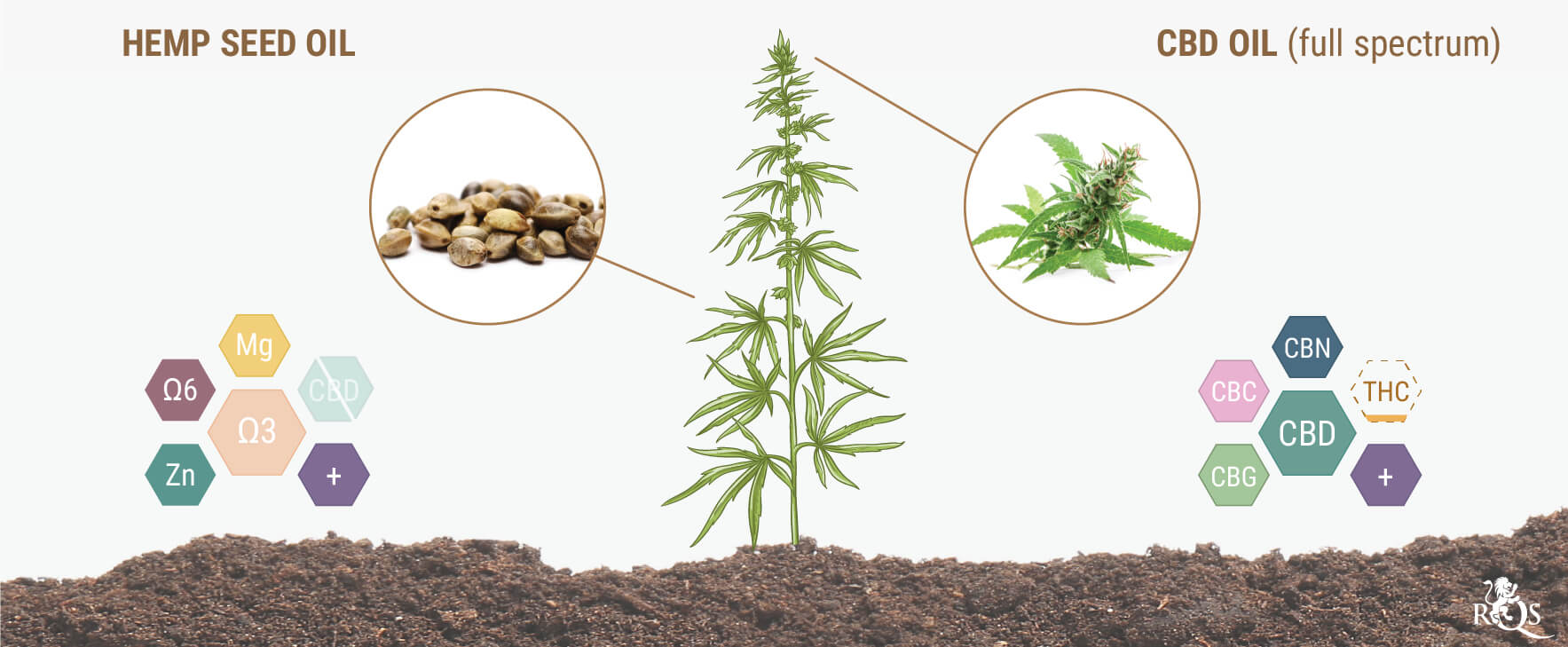
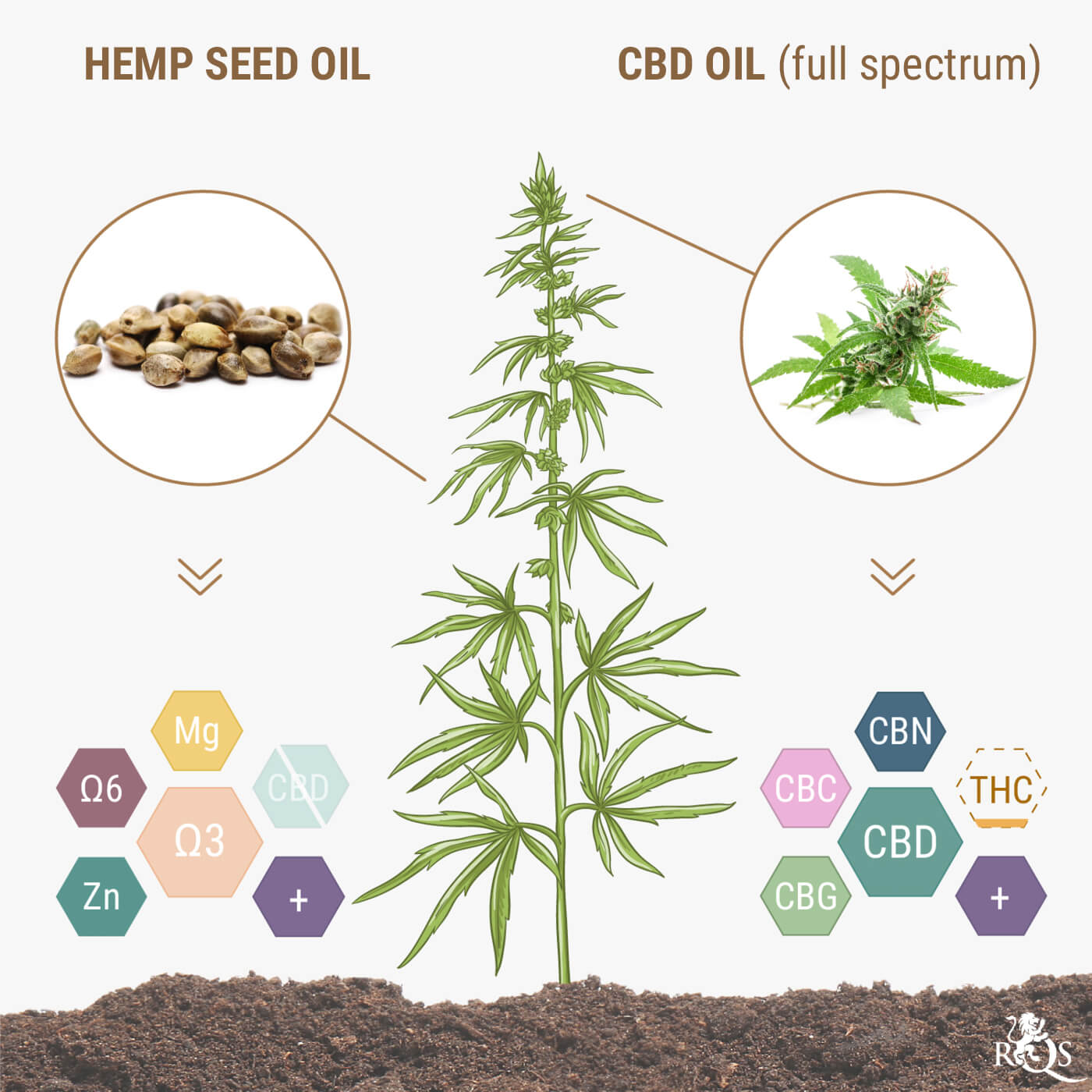
How to Easily Incorporate CBD Into Your Diet
If you’re looking to reap the benefits of CBD nutrition, keep reading.
Start With a Well-Balanced Diet
CBD isn’t a miracle panacea, and it won’t magically make you healthy if you’re not already following a strong, balanced diet. So, before you reach for a CBD dropper or try cooking with CBD, make sure you take the time to evaluate your current eating habits and ensure you're consuming plenty of fruits, vegetables, healthy proteins, and grains.
Introduce Your Body to CBD Gradually
When introducing a new element into your diet, it’s important to do so gradually. CBD, in particular, is a unique compound that affects everyone somewhat differently, and people often have to experiment with different doses to find the “sweet spot” where they experience optimal results.
If you’ve never used CBD before but are interested in trying it, we recommend starting with a low dose of a medium-strength CBD oil, like our 5% or 10% CBD oil. We recommend starting with a single daily dose of a ¼ dropper, taken either in the morning or evening.
Keep the oil in your mouth (preferably under your tongue) for about 60 seconds for faster absorption and pay close attention to how the oil makes you feel for the rest of the day. If you’re not getting the desired effects with this dose within one week, step up your dose to a ½ dropper.
Remember that CBD is non-toxic and generally well-tolerated, so you can essentially take as much as you want (within the recommended dosing guidelines), but there’s no reason to overdo it. Just be sure to let your body adjust to larger doses to avoid unwanted side effects (while it’s rare, some people experience sleepiness upon beginning CBD use).
Find the Right CBD Product
We always recommend people start their CBD nutrition journey with CBD oil. There are a number of reasons for this:
- CBD oils are readily available in many parts of the world
- CBD oils give you the flexibility to adjust your dose and find your own “sweet spot”
- CBD oils have a fast onset and usually take effect within 15–20 minutes
However, you may find that CBD oil doesn’t quite give you the effect you're looking for. If, for example, you’re after long-lasting effects or an easier way to dose, you may want to opt for a product like our CBD Softgel Capsules. Available in 4% and 10% concentrations, these capsules offer a slow, long-lasting release of CBD via the digestive tract.
If, on the other hand, you’re thinking of using CBD in a localised manner, you may want to consider using topical CBD infused products like creams or ointments. Unlike edibles and oils, these products deliver CBD to receptors in the skin, offering very localised outcomes without entering the bloodstream.
These options are just the tip of the iceberg; you can also find plenty of CBD vitamins and supplements to suit your needs and preferences.
Consider Using CBD in Food
If you want to make CBD a staple of your diet, you don’t have to rely on ready-made products like tinctures, edibles, and topicals. Many people use CBD-rich flowers or oils to infuse their favorite meals. Doing so is super simple; for more information on CBD in food, check out our exclusive article on how to cook with CBD.
Also, make sure to check out some of the following CBD recipes to get you started!
- Cannabis-infused vegan chocolate cookies

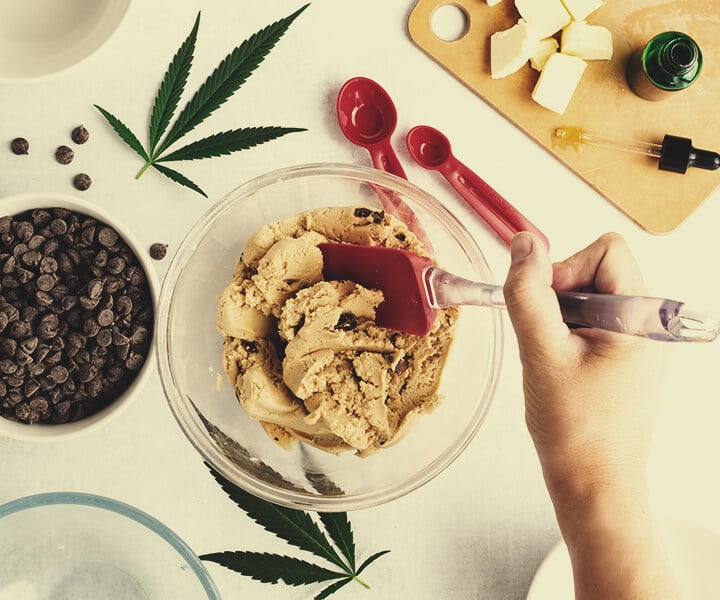
Look Into CBD Vitamins and Food Supplements
CBD is starting to make its way into a wide variety of products. One of the latest trends in the health food industry is CBD vitamins and enriched food supplements. Unlike regular CBD oils or capsules (which just contain CBD and carrier oils like olive or MCT oil), CBD food products mix CBD with other highly nutritious substances.
CBD Hemp Seed Oil (available in many CBD concentrations), for example, takes all the effects of hemp seed oil and combines it with those of CBD. The result is a powerful product rich in linoleic acid and oleic acids (vital allies in promoting skin health), omega-3 and 6 fatty acids, gamma-linolenic acid (important for skin and women’s health), and, of course, CBD.
Other specialized CBD vitamins and food products may help with:
- Detoxing: CBD detox teas are a great choice to help enrich cleanses. In relation to this, some studies are looking into whether CBD could have an effect on appetite[5] or immune function[6].
- Sports training: CBD workout shakes combine CBD with protein, creatine, vitamins, and other superfoods to create a single product packed with a whole lot of goodness.
Starting a CBD-Rich Diet – FAQ
To close out this guide, we decided to provide answers to some of the most common questions on CBD nutrition. By the end, you should be ready to get out there and incorporate CBD into your daily life.
Is CBD a Novel Food?
Novel foods, according to UK and EU law, are new foods that haven’t been widely consumed by people in Europe or Great Britain. This can include foreign foods traditionally eaten elsewhere (like baobab, for example), foods containing new ingredients, or foods made with modern manufacturing processes (like bread exposed to UV light to increase vitamin D content).
CBD was added to the European Novel Foods list in January 2019, meaning CBD manufacturers need to formally apply to have their products authorized as a novel food before they can hit the shelves; a process that is very time-consuming and expensive.
If you’re living in the EU, make sure to only buy CBD infused products from respected manufacturers that comply with Novel Food law. Unfortunately, some countries aren’t as strict at enforcing these laws as others, and some manufacturers try to take advantage of this. Use your best judgement.
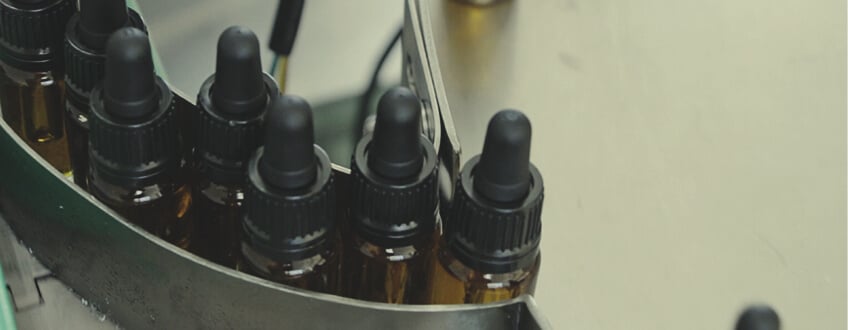
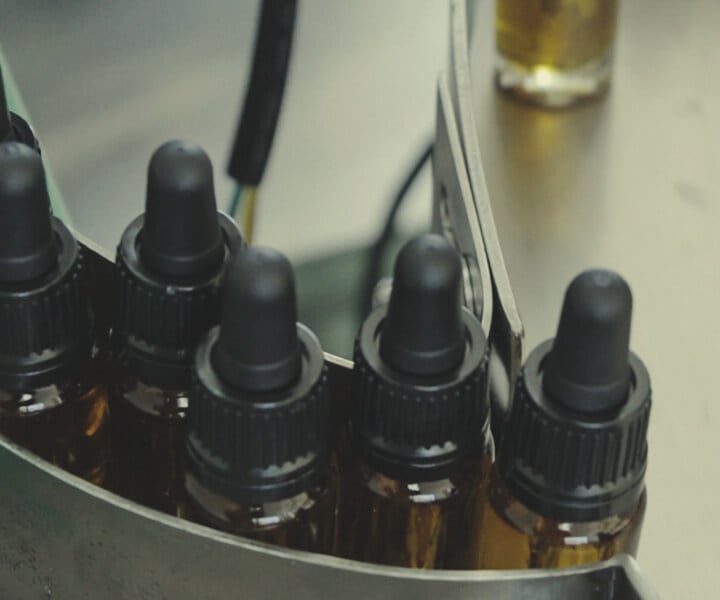
How Does CBD Fit Popular Diets (Vegan, Keto, Paleo, etc)?
At RQS, we take extra care when sourcing and manufacturing all of our CBD infused products. We only use top-shelf natural cannabis extracts with low levels of THC in order to meet EU and UK laws, and we use quality edible carrier oils in our CBD oil and softgel caps. Hence, you can rest assured that our CBD products will fit in perfectly with vegan, keto, paleo, vegetarian, and carnivorous diets.
What Is the Nutritional Value of CBD Oil?
Our regular CBD oils are made with an olive oil carrier. Given the small amount of oil you’ll be taking on a daily basis, the nutritional value is fairly insignificant, but ultimately positive. Those interested in using CBD in food are advised to incorporate the cannabinoid into healthy snacks and dishes (rich in healthy fats) to boost the cannabinoid's nutritional potential.
The same goes for our CBD oils made with hemp seed oil carriers. These feature all of the same contents as hemp seeds, including:
- Plant-based protein
- High levels of magnesium, phosphorous, and potassium
- Small amounts of zinc, iron, and calcium
- Omega-3 and 6 fatty acids
- B vitamins, vitamin C, A, and E
Final Thoughts on CBD Nutrition
CBD nutrition isn't rocket science, but it takes some time and experimentation to get the most out of a CBD infused diet. Many people use CBD as an additional ingredient in their cooking. Fancy doing this yourself? Check out our full list of CBD-infused products and start whipping up your own cannabinoid-enriched meals today!
- Dietary Omega-6/Omega-3 and Endocannabinoids: Implications for Brain Health and Diseases https://www.researchgate.net
- Brain cannabinoids in chocolate. https://escholarship.org
- Care and Feeding of the Endocannabinoid System: A Systematic Review of Potential Clinical Interventions that Upregulate the Endocannabinoid System https://www.ncbi.nlm.nih.gov
- Effect of cannabidiolic acid and ∆ 9-tetrahydrocannabinol on carrageenan-induced hyperalgesia and edema in a rodent model of inflammatory pain - PubMed https://pubmed.ncbi.nlm.nih.gov
- Role of Cannabinoids in Obesity https://www.ncbi.nlm.nih.gov
- Immune Responses Regulated by Cannabidiol https://www.ncbi.nlm.nih.gov


























